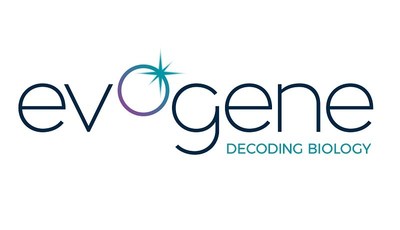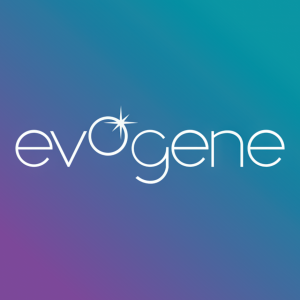Evogene and Professor Ehud Gazit of Tel Aviv University Announce a Collaboration to Develop New Therapeutics for Metabolic Diseases
Rhea-AI Summary
Evogene (NASDAQ: EVGN) has announced a strategic collaboration with Professor Ehud Gazit from Tel Aviv University to develop novel therapeutics for metabolic diseases. The partnership, facilitated by Ramot, combines Evogene's ChemPass AI platform with Professor Gazit's expertise in molecular self-assembly to target diseases caused by metabolite accumulation.
The collaboration aims to develop small molecules that can inhibit pathological self-assembly processes in diseases such as Tyrosinemia, Gout, and Maple Syrup Urine Disease (MSUD). The project will leverage ChemPass AI's advanced algorithms to understand therapeutic modes of action and design novel molecules for treatment.
Positive
- None.
Negative
- Early-stage research collaboration with no immediate revenue impact
- No specified timeline for drug development or commercialization
- Competitive landscape in metabolic disease therapeutics
News Market Reaction – EVGN
On the day this news was published, EVGN gained 3.31%, reflecting a moderate positive market reaction. This price movement added approximately $338K to the company's valuation, bringing the market cap to $11M at that time.
Data tracked by StockTitan Argus on the day of publication.
A failure in metabolite breakdown leads to their ordered self-assembly into pathological aggregates, such as in Tyrosinemia and Gout.
REHOVOT,

Metabolite accumulation, often due to impaired metabolic breakdown of specific molecules, drives the ordered self-assembly process that forms detrimental aggregates, characterizing a range of common and rare diseases, including Tyrosinemia, Gout, and Maple Syrup Urine Disease (MSUD).
The goal of this collaboration is to design novel small molecules capable of effectively inhibiting pathological self-assembly processes, thereby paving the way for groundbreaking new therapeutics that could change the lives of millions of patients.
The collaboration brings together Evogene's ChemPass AI's state-of-the-art computational capabilities for generative molecular design with Professor Gazit's world-renowned expertise in the characterization and manipulation of the self-organization of biological molecules. Professor Gazit's discovery of the ability of very short peptides, as well as metabolites, to form typical amyloidal nano-fibrils offers critical insights into disease mechanisms and potential therapeutic interventions. This deep scientific understanding will be coupled with Evogene's generative AI models, purpose-built to optimize across multiple key parameters, offering a synergistic solution.
The collaboration is aimed at leveraging ChemPass AI's advanced algorithms and models to:
- Decipher desired modes of action: Gaining a profound understanding of how therapeutic agents can intervene in metabolite self-assembly.
- Drive generative molecular design with ChemPass AI: Utilizing the power of AI to create entirely novel molecules tailored to exhibit a precise combination of features necessary for therapeutic efficacy.
Professor Ehud Gazit from
Dr. Gabi Tarcic, Evogene's VP Product, stated: "This collaboration with Professor Gazit's outstanding research group at
About Evogene Ltd.
Evogene Ltd. (Nasdaq: EVGN, TASE: EVGN) is a computational biology and chemistry company leveraging big data and artificial intelligence, aiming to revolutionize the development of life-science-based products by utilizing cutting-edge technologies to increase the probability of success while reducing development time and cost.
Evogene has established three unique tech-engines: MicroBoost AI, ChemPass AI, and GeneRator AI. Each tech-engine focuses on the discovery and development of products based on one of the following core components: microbes (MicroBoost AI), small molecules (ChemPass AI), and genetic elements (GeneRator AI).
Evogene uses its tech-engines to develop products through strategic partnerships and collaborations, including its subsidiaries:
- Biomica Ltd. (www.biomicamed.com) – developing and advancing novel microbiome-based therapeutics to treat human disorders, powered by MicroBoost AI;
- Lavie Bio (www.lavie-bio.com) – developing and commercially advancing microbiome-based ag-biologicals, powered by MicroBoost AI;
- AgPlenus Ltd. (www.agplenus.com) – developing next-generation ag-chemicals for effective and sustainable crop protection, powered by ChemPass AI; and
- Casterra Ag (www.casterra.co) – developing and marketing superior castor seed varieties that produce high yield and high-grade oil content on an industrial scale for the biofuel and other industries, powered by GeneRator AI.
For more information, please visit: www.evogene.com.
Forward-Looking Statements
This press release contains "forward-looking statements" relating to future events. These statements may be identified by words such as "may," "could," "expects," "hopes," "intends," "anticipates," "plans," "believes," "scheduled," "estimates," "demonstrates" or words of similar meaning. For example, Evogene and its subsidiaries are using forward-looking statements in this press release when it discusses the success of the collaboration to design novel small molecules capable of effectively inhibiting pathological self-assembly processes, and groundbreaking new therapeutics and to create entirely novel molecules tailored to exhibit a precise combination of features necessary for therapeutic efficacy and the success of the collaboration with accelerating the discovery of truly novel therapeutics. Such statements are based on current expectations, estimates, projections and assumptions, describe opinions about future events, involve certain risks and uncertainties which are difficult to predict and are not guarantees of future performance. Therefore, actual future results, performance or achievements of Evogene and its subsidiaries may differ materially from what is expressed or implied by such forward-looking statements due to a variety of factors, many of which are beyond the control of Evogene and its subsidiaries, including, without limitation, the current war between
Contact:
ir@evogene.com
Tel: +972-8-9311901
Logo - https://mma.prnewswire.com/media/1947468/4576969/Evogene_Logo.jpg
![]() View original content:https://www.prnewswire.com/news-releases/evogene-and-professor-ehud-gazit-of-tel-aviv-university-announce-a-collaboration-to-develop-new-therapeutics-for-metabolic-diseases-302527528.html
View original content:https://www.prnewswire.com/news-releases/evogene-and-professor-ehud-gazit-of-tel-aviv-university-announce-a-collaboration-to-develop-new-therapeutics-for-metabolic-diseases-302527528.html
SOURCE Evogene Ltd







